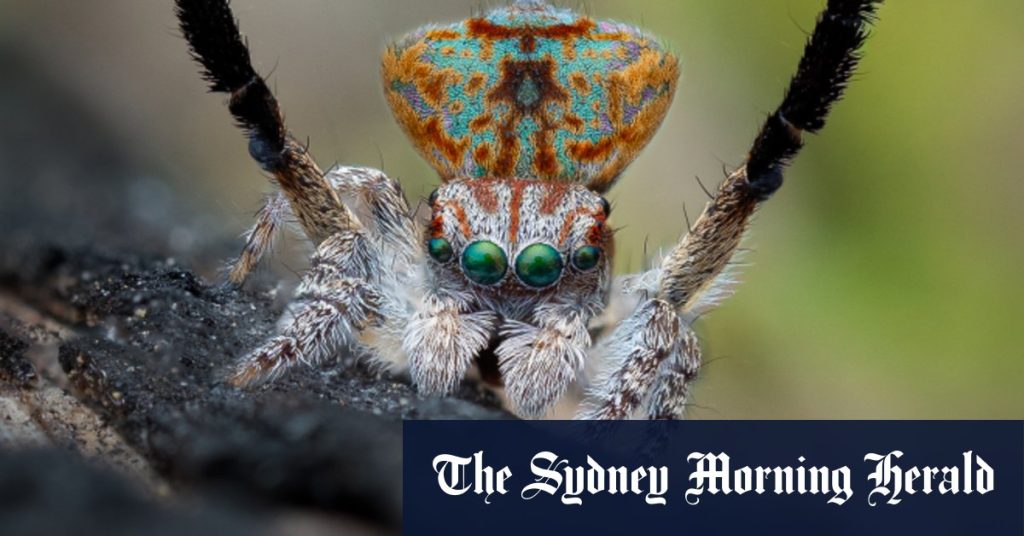Summarize this content to 2000 words in 6 paragraphs “This sprawling lifestyle of everyone owning the Australian dream has come at a huge cost to our environment.”Year 12 student and photographer Michael Lun took incredible first-of-their kind images of the male spider performing its courtship dance, and collected specimens for the species to be described by scientists.He’s also watched Peet’s Elavale housing estate march through the dunes to the coastline, ever closer to the discovery site.Michael Lun where he found a new Peacock Spider witth the Elavale Eglinton Peet housing development behind him. Credit: Ross Swanborough“On my last adventure out there, houses are now 20 metres away from where the spiders are,” he said.“The loss of habitat for this species of spider isn’t on anyone’s radar. This species has a special place in my heart and I want to protect it.”A Peet spokesman said no new species were noted as part of Peet’s work in the 80 hectare Elavale estate, which once complete will comprise more than 1000 lots.“Peet takes its responsibility to protect local environments seriously as part of its development activities, and we meet all government and regulatory environmental requirements in the implementation of our projects,” he said.Greens MP Brad Pettitt said the newly discovered spider was likely to become extinct without protection.“Suburbs have derisively been called, most famously by Bill Vaughan, as places where a developer bulldozes out the trees then names the streets after them,” he said.“In WA, we like to take this one step further by discovering a new species of spider, naming this unique new species after the area in which it is found, and then threatening its survival by bulldozing its unique habitat.Loading“WA needs to better protect the unique flora and fauna we have and not turn [its habitat] into another unsustainable, largely treeless, car-dependent suburb over an hour from the city centre.”Volpe said the south-west corner of WA, one of the most biodiverse places on the planet, had a mind-boggling number of animal and plant species, including 69 known species of peacock spider.“Never in human history have we had more power to stop species extinction than we do now. The value of existing bushland in the south-west is so much more than any developer or government can create a figure for.”When WAtoday asked Planning and Housing Minister John Carey’s office to comment, the inquiry was handballed to the departments of Planning, Lands and Heritage; Primary Industries and Regional Development; Biodiversity, Conservation and Attractions; and Water and Environmental Regulation.It comes as the state government embraces National Science Week which started on Monday with a focus on species survival. Activities are planned to explore some of the critical challenges impacting Earth’s human, animal and plant habitation, especially here in WA.Specimens collected are now housed at the WA Museum.The Morning Edition newsletter is our guide to the day’s most important and interesting stories, analysis and insights. Sign up here.
Keep Reading
Subscribe to Updates
Get the latest creative news from FooBar about art, design and business.
© 2025 Globe Timeline. All Rights Reserved.


